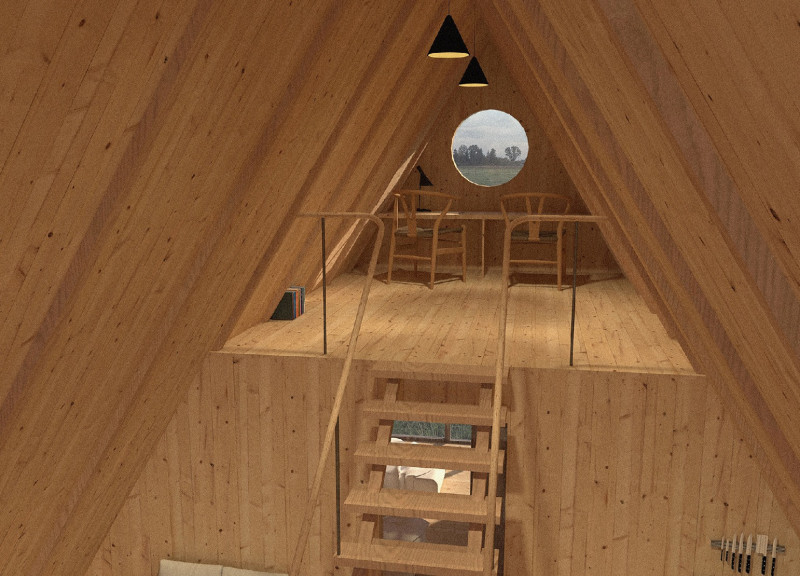5 key facts about this project
In Pavilosta, a small fishing port town along the Baltic Sea in Latvia, a new design integrates modern elements with the area’s traditional building practices. Situated within a landscape of flat fields and abundant trees, the spaces created serve both communal gatherings and quiet reflection. The project aims to reflect the historical context of the Courland region while providing a peaceful environment for visitors.
ARRIVAL AND GATHERING
Visitors begin their experience with an entry sequence that guides them through a space defined by existing trees and a proposed stone wall. This wall provides a sense of privacy, separating guests from the outside. The main gathering area has a pitched roof that stands out against the landscape, designed for various communal activities. Here, a fireplace and chimney contribute warmth and a welcoming environment, encouraging interaction among those present.
FLEXIBILITY AND SECLUSION
A flexible area connects spaces for community activities with quieter zones. This design allows for different events like poetry readings and exhibitions. Outdoor spaces include a meditation area with an elliptical courtyard, surrounded by shaded benches. This setup offers visitors a calm environment for personal reflection, enhanced by views of local greenery and colorful wildflowers.
POET HUTS
The design features Poet huts that resemble timber tents, keeping a minimalist approach in floor area. These huts encourage movement between spaces and include double-height living areas. A central stair leads to a mezzanine level with desks, providing a peaceful spot for contemplation while overlooking the landscape.
The project emphasizes the use of timber from nearby pine forests, promoting local building traditions. Thatch roofs connect the structures to the environment and add to their sustainability, embodying traditional craftsmanship in a modern design setting.


























